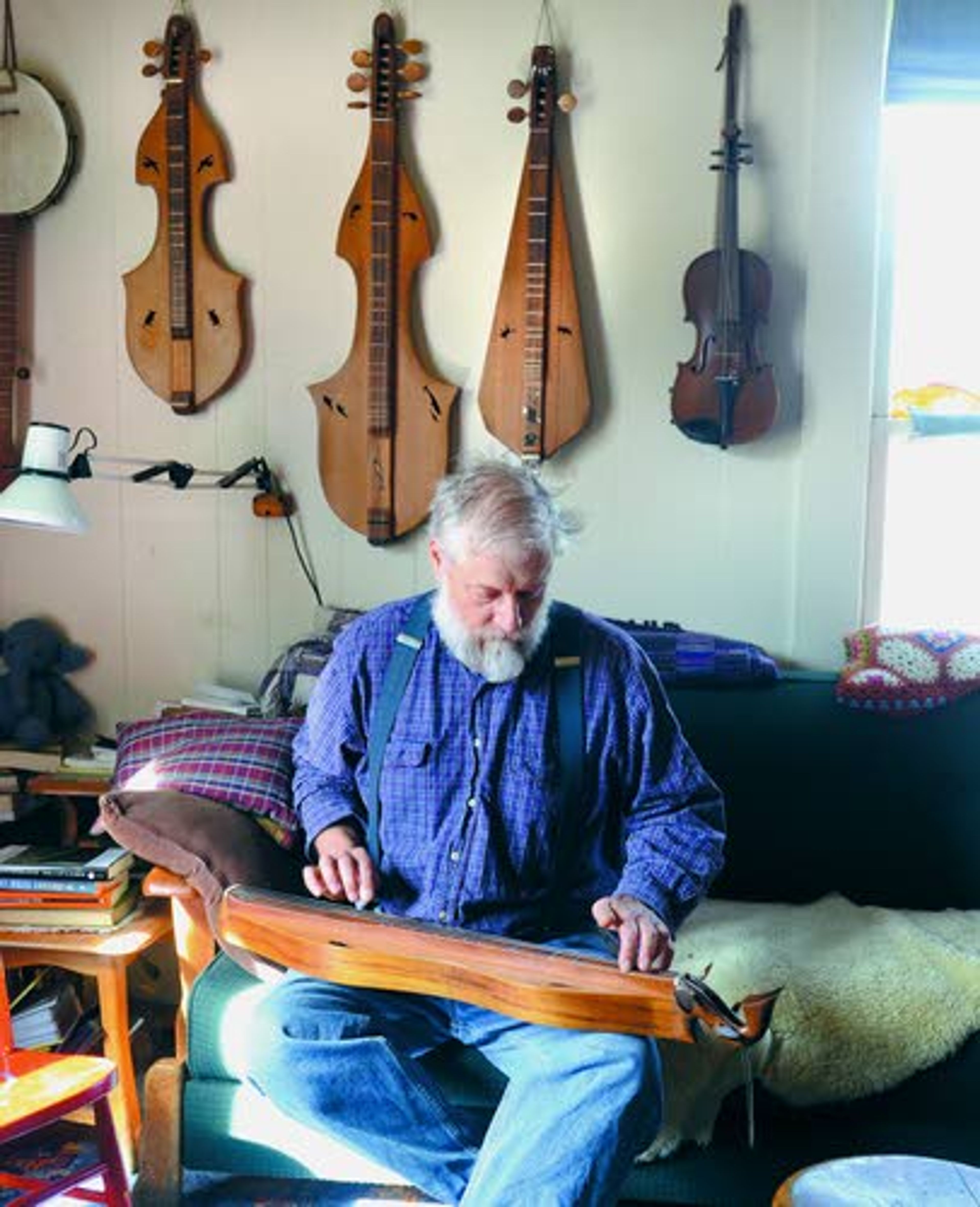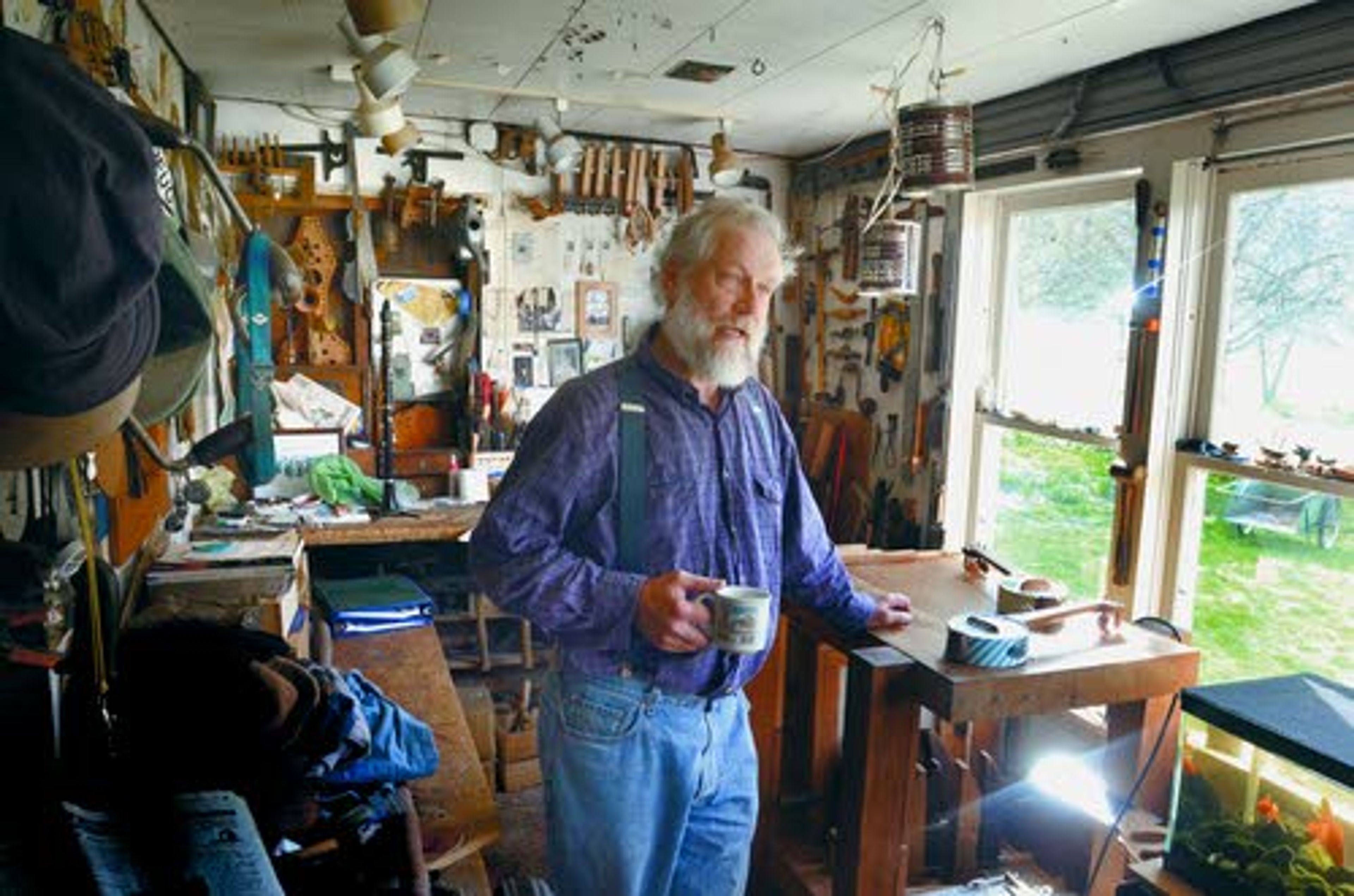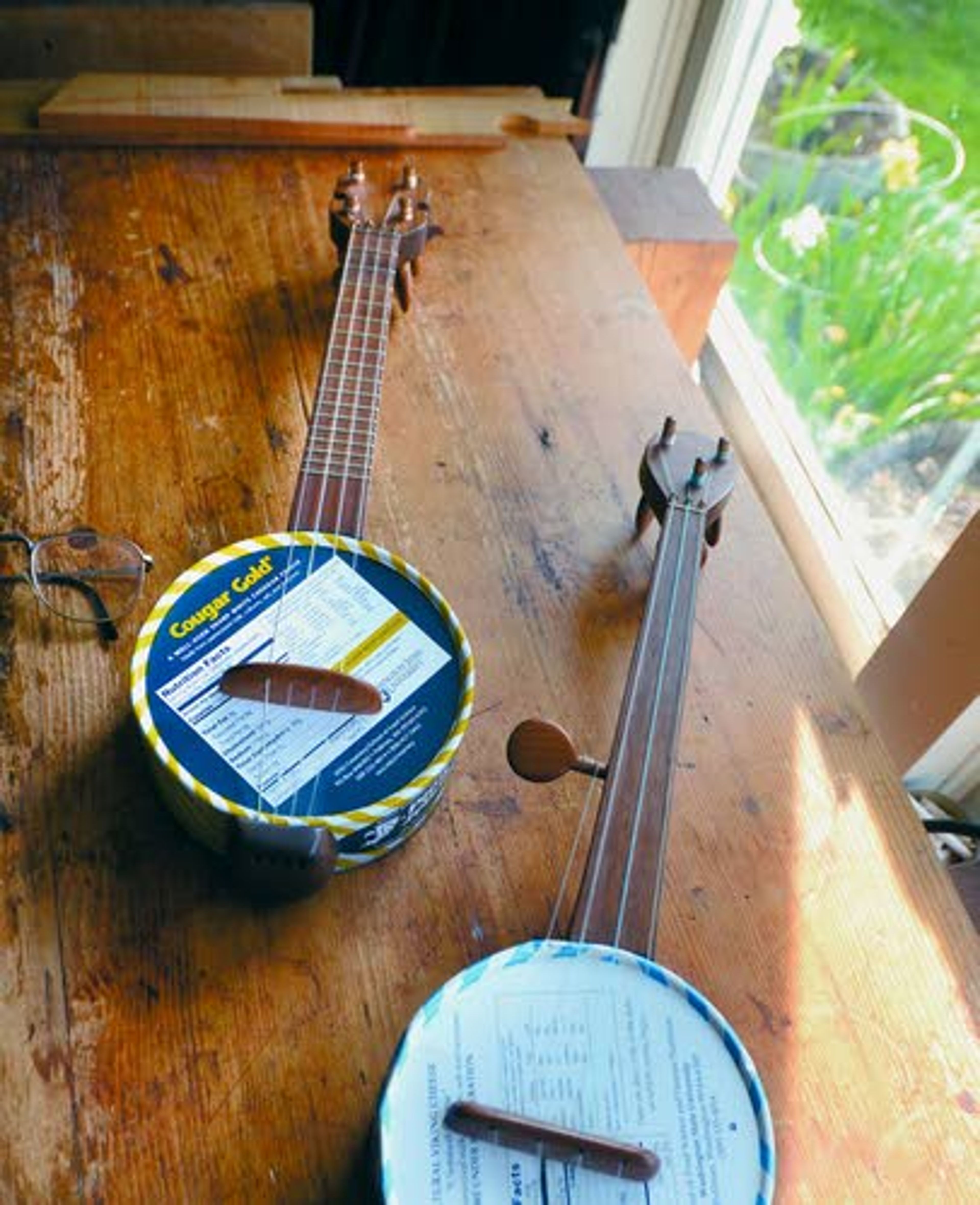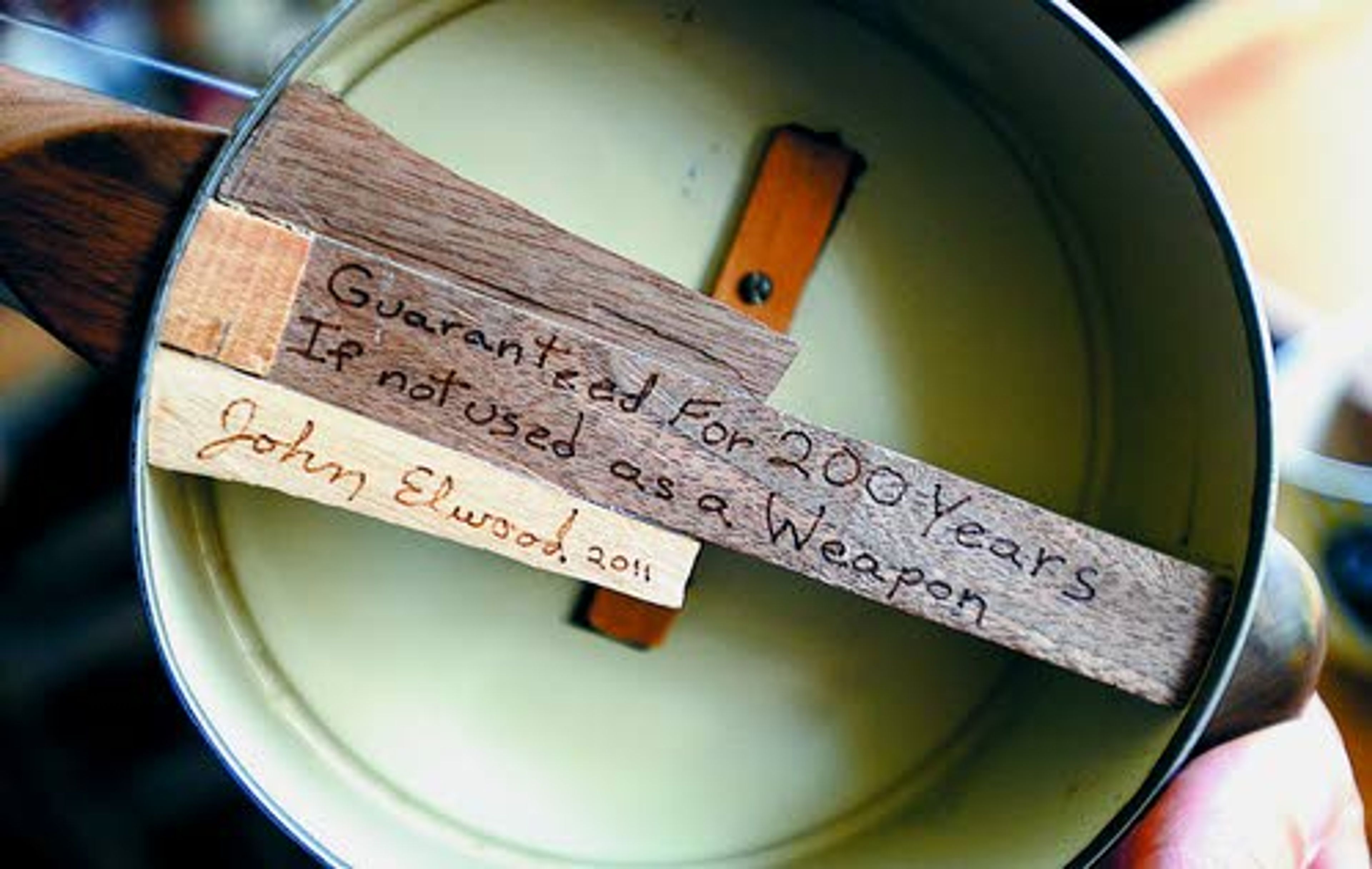The Dean of Dulcimers
With an old-school flavor, John Elwood creates intricate musical instruments. And then there's 'the canjo'
ELBERTON, Wash. - In an age when fingers toil at pecking unimportant dispatches bound for ether, John Elwood coaxes music from blocks of wood and recycled tin cans.
Elwood lives in a remote corner of eastern Washington in a little farmhouse where chickens, dogs and a cat romp among yellow daffodils. Wild birds eat from feeders outside his workshop window where he uses a foot-powered lathe made from recycled bicycle parts to make pieces for handmade dulcimers, banjos and mandolins.
Dulcimers carved with animal shapes - wolves, swallows, fish - adorn the home's walls. Elwood, 62, has spent more than 40 years perfecting the shape and sound of the American folk instrument. He bartered one with a doctor in exchange for the delivery of his second child. (He bartered a banjo for the first, he says.) However, to his slight dismay, what he's become best known for is making banjos from Washington State University Cougar Cheese cans.
"After all of my artistic work what am I recognized for?" he asks, shaking his head.
Elwood sells the playable can instruments with hand-carved necks for $250 to $350. They are designed to be extremely durable. He shows the inscription on the back of one that reads, "Guaranteed for 200 years, if not used as a weapon." He drops it on the floor, and kicks it with a laugh.
A story about the "canjos" in the university's magazine brought the Seattle Times and other media to his door a couple years ago. He says reporters often typecast him as a back-to-the-lander because he doesn't have a TV, computer, website or mobile phone. He doesn't do "twitface" or "unsocial nutwalking." It's not real communication, he explains.
"You've gotta make space in your life for things you wanna do," Elwood says. "I hope I'll be declared a national park someday because I've never seen an episode of 'M*A*S*H,' " he adds.
Elwood credits the lack of technological accoutrements to his survival as an instrument builder.
Elwood's dulcimers sell for $400 to $1,200, but they are a labor of love and not a major source of income.
"I'm not a Chinese village. I'm a guy who aspires to join the middle class," says Elwood, who will demonstrate making tuning pegs on his foot-powered lathe Saturday at Artisans at the Dahmen Barn in Uniontown (see related story).
Outside his shop, Elwood works as a piano technician and uses music as a hospice volunteer. His wife, Sally Burkhart, manages Brused Books in Pullman.
Elwood says that he "fell in love with music with mama's milk," in a home in Albion where music always played. Pullman public schools later fostered his interest.
His father played the piano. His uncle, James Newell, was a "tuba czar" in Oregon, where he helped found the state's tuba association. Combine those genetics with a whittling grandfather who Elwood once watched cut a 2 by 4 in half with a jackknife. Elwood says he was born with an insatiable desire to make things and was about 7 when he built his first banjo out of a cigar box and some fishing line.
As a young man Elwood saw dulcimer musician Jean Ritchie, once dubbed "the mother of folk," perform in Berkeley, Calif., an inspiration for his lifelong affair with the instrument. He started making dulcimers by hand and built a foot-powered lathe because he didn't have electricity at the time.
"I tell people I'm the best dulcimer teacher in the world because my students never come back. In about 10 minutes I show them everything I know and then it's up to the instrument. It's designed to be accessible," Elwood says.
Some of the people who buy Elwood's dulcimers are musicians, others are not. Requests for canjos continue to arrive from those who can track him down. He has an email address, but he won't give it to you because he rarely checks it. The green rotary phone on his kitchen wall, (509) 635-1497, is the best way to reach him.
"If you want John Elwood you have to call him up on the phone, or write him a letter, remember that? Or come see him," Elwood says.
---
Bauer may be contacted at jkbauer@lmtribune.com or (208) 848-2263.




